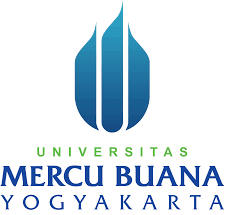The Effect of Compensation and Work Environment on Employee Performance at the Factory of PT XYZ
DOI:
https://doi.org/10.55927/fjst.v4i7.153Keywords:
Compensation, Work Environment, Employee Performance, PLS, Palm Oil FactoryAbstract
This study investigates the effects of compensation and work environment on employee performance at PT XYZ, a palm oil manufacturing company. Using a quantitative approach with a saturated sampling technique, data were collected from 92 employees across six divisions. The analysis was conducted using Structural Equation Modeling with Partial Least Squares (PLS). Results showed that compensation and work environment were rated as good (75%), while employee performance was also rated good (80%). However, compensation had a positive but insignificant effect, while work environment significantly influenced performance. These findings suggest that improving physical and social work conditions can enhance employee outcomes. The study offers insights for management to improve compensation systems and workplace quality to optimize performance.
References
Akbar, M. (2018). Manajemen sumber daya manusia dalam industri perkebunan. Jakarta: Prenada Media.
Asy’ari, A., & Indiyati, D. (2024). Manajemen kinerja karyawan di sektor industri. Yogyakarta: Deepublish.
Bangun, W. (2021). Manajemen sumber daya manusia. Jakarta: Erlangga.
Elisa, A., Putra, R. A., & Hidayati, S. (2022). The effect of compensation on employee performance: A study on service industry. Jurnal Manajemen dan Bisnis Indonesia, 18(1), 45–56.
Febrian, M. A., & Rianggara, R. (2023). Compensation and employee performance: A quantitative analysis. Journal of Economic and Business Research, 5(2), 112–120.
Fauzan, R., & Sary, N. (2020). Evaluasi kinerja karyawan berbasis kompetensi. Jurnal Ekonomi dan Bisnis, 4(1), 21–30.
Harishchandra, D. (2023). Psychological safety and employee performance: A theoretical approach. International Journal of Management Studies, 7(3), 99–107.
Herawati, L., Santosa, P., & Dewi, A. (2021). The effect of compensation on performance in manufacturing companies. Jurnal Ilmiah Ekonomi dan Bisnis, 8(2), 132–141.
Hermawan, A. (2022). Pengaruh lingkungan kerja terhadap kinerja karyawan di PT Sakti Mobile Jakarta. Jurnal Ilmu Manajemen dan Bisnis, 10(1), 78–85.
Indiyati, D., et al. (2021). Manajemen sumber daya manusia modern. Bandung: Alfabeta.
Kusuma, H. N., & Said, A. (2017). Workplace environment and productivity: Empirical evidence from Indonesian manufacturing firms. Jurnal Manajemen Indonesia, 17(1), 54–66.
Luturlean, B. S., Ramdhani, M. A., & Purnama, Y. (2020). Strategi kompensasi dalam meningkatkan kinerja pegawai. Jurnal Sumber Daya Manusia, 11(2), 95–106.
Marlina, L., & Hidayat, R. (2025). Creating a positive work environment for optimal employee performance. Journal of Organizational Behavior Studies, 9(1), 23–35.
Nasim, R., & Anshori, Y. (2024). Lingkungan kerja sebagai determinan kinerja karyawan: Studi di sektor jasa. Jurnal Ilmu Administrasi dan Kebijakan Publik, 11(2), 65–78.
Nitisemito, A. S. (1992). Manajemen personalia. Jakarta: Ghalia Indonesia.
Nugraha, R., & Tjahjawati, S. (2017). Analisis faktor-faktor yang memengaruhi kinerja karyawan. Jurnal Manajemen dan Organisasi, 9(2), 50–59.
Nurdin, I., Wibowo, T., & Astuti, D. (2023). Model pengaruh lingkungan kerja terhadap kepuasan dan kinerja karyawan. Jurnal Psikologi Industri dan Organisasi, 6(1), 88–96.
Pangestu Nur, A., Sari, M., & Huda, L. (2022). Pengaruh motivasi dan disiplin terhadap kinerja karyawan. Jurnal Manajemen dan Inovasi, 4(3), 77–89.
Permadi, A., & Kusuma, R. (2021). Analisis kebijakan lembur dan pengaruhnya terhadap produktivitas kerja. Jurnal Administrasi Bisnis, 10(2), 44–52.
Purnamasari, V., & Utari, R. (2024). The indirect effect of compensation on performance through motivation. Journal of Human Resource Development, 12(1), 34–45.
Risahondua, L., & Laurens, C. (2024). Improving employee performance through environmental change: A case study. Jurnal Administrasi dan Bisnis, 9(2), 56–64.
Sanaba, L., Wijaya, A., & Yusuf, D. (2022). Hubungan kompensasi terhadap kinerja melalui kepuasan kerja. Jurnal Ekonomi dan Sumber Daya Manusia, 5(2), 102–118.
Sedarmayanti. (2013). Manajemen sumber daya manusia: Reformasi birokrasi dan manajemen pegawai negeri sipil. Bandung: Refika Aditama.
Sialen, R., Kartika, S., & Dewi, L. (2021). Analisis kinerja karyawan menggunakan pendekatan balanced scorecard. Jurnal Akuntansi dan Bisnis, 6(1), 39–50.
Sugiono, D., Haris, M., & Latifah, F. (2021). Compensation, job satisfaction and employee performance: A mediated model. Jurnal Ekonomi dan Bisnis Syariah, 9(3), 144–153.
Sudiantini, T., Mahendra, R., & Yunita, R. (2023). Literature review: Compensation as a motivation factor in performance. Jurnal Administrasi Bisnis, 13(1), 25–33.
Susanto, H., Wijaya, P., & Sari, R. (2023). Performance management in the public sector: Issues and best practices. International Journal of Public Administration, 15(2), 66–74.
Syada, F., & Perkasa, B. (2024). The role of work environment in enhancing employee productivity. Jurnal Sains Manajemen, 14(1), 13–22.
Syahreza, M., Rahayu, L., & Kurniawan, B. (2017). Compensation and motivation: A study based on Maslow’s hierarchy of needs. Jurnal Manajemen dan Bisnis, 6(2), 98–107.
Utama, R. (2020). Manajemen sumber daya manusia kontemporer. Surabaya: CV Mega Buana.
Wardhana, D. (2023). Manajemen sumber daya manusia strategis. Yogyakarta: Andi Offset.
Widodo, J., & Yandi, A. (2022). Strategic compensation and its impact on employee performance. Journal of HRM Practice, 6(1), 45–60.
Widyatmojo, S., Indrawan, T., & Sulastri, L. (2022). Fair compensation design: A key to employee retention. Jurnal Manajemen Bisnis, 12(1), 71–83.
Winoto, A., & Perkasa, R. (2024). The impact of work environment on employee morale and performance. Journal of Management Research, 8(2), 110–120.
Wonda, R., Simanjuntak, T., & Halim, L. (2022). Physical and psychosocial work environment factors and employee performance. Jurnal Ilmiah Manajemen, 14(2), 85–92.
Zhenjing, L., Wang, Y., & Liu, S. (2022). Understanding the work environment through ecological systems theory. Asian Journal of Organizational Psychology, 3(1), 22–35.
Downloads
Published
Issue
Section
License
Copyright (c) 2025 Puput Tri Handayani, Ratna Komala Putri

This work is licensed under a Creative Commons Attribution 4.0 International License.


































